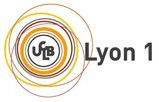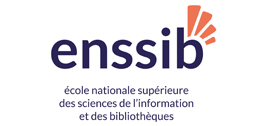Natural capital / Computational sustainability / Environmental modeling
| When |
Apr 02, 2013
from 09:15 to 05:00 |
|---|---|
| Where | Salle de séminaire de l’IXXI |
| Add event to calendar |
|
This field is currently growing very rapidly (dedicated conferences and project calls, institutes creation,…), and we hope that the presentations of this day will shed some light on several of the application fields and tools of computational sustainability.
9h15-9h30 : Welcome
9h30-10h15 :
Jean-Louis Weber (EEA, Copenhague, jlweber45@gmail.com)
For long, economic-environmental accounts have been seen as an extension of National Accounts and of the field of the economic values. Environmental economists, while acknowledging that because of externalities social values are higher than market values propose to measure the former in relation to the prices of the latter, using the so-called shadow prices. As a consequence losses of social values are equivalent to losses of economic benefits and inclusive calculations of wealth the unique measurement of (weak) sustainability. The ecosystem approach to accounting adopts the point of view that ecosystems are assets which should be considered altogether according to their economic, social and ecological value. The maintenance of such capital should not be restricted to present and future economic benefits but should encompass instead the full set of ecosystem functions, including their capacity to reproduce themselves. Economic performance is consequently measured by its output as by the sustainability of resource use. When ecosystem degradation happens, economy’s liability to nature results in ecological debts which should be recorded in balance sheets. Debts don’t need to be measured in money but better to start with a composite index which reflects the direct impacts of excessive resource use and the indirect degradation of ecosystem health by pollution, fragmentation, or stress on biodiversity.
10h15-11h :
Jean-Pascal Bassino (IAO, ENS Lyon, jean-pascal.bassino@ens-lyon.fr)
Natural capital and well-being; the long-run dynamics
The relevant indicator of sustainable well-being is not a flow (income) but a stock variable: the total stock of capital (human, natural and produced) per head (Dasgupta 2001, 2009). This theoretical result has seen an application in the genuine saving (GS) approach developed by World Bank economists; this allowed assessing the importance of natural capital in total national wealth in developing countries (Hamilton and Clemens 1999, Hamilton 2006). Furthermore, recent studies investigating the long-run dynamics of genuine saving from the pre-industrial period to the present (Greasley et al 2012, Lindmark and Acar 2012) show that GS-type measures can predict changes in future well-being reasonably well over 50 or 100 years into the future. However, these results may be sensitive to the definition of the value of natural capital.
- Dasgupta, P., 2001. Human Well-Being and the Natural Environment. New York, Oxford University Press.
- Dasgupta, P., 2009. The Welfare Economic Theory of Green National Accounts. Environmental and Resources Economics, 42, 3-38.
- Greasley, D, Hanley, N. Kunnas, J. McLaughlin, E. Oxley, L. Warde, P. (2012). Testing the predictive power of genuine savings as a long-run indicator of future well-being. Australian National University, Centre for Economic History, Discussion Paper 2012-7.
- Hamilton, K. and Clemens, M (1999). Genuine Savings Rates in Developing Countries. World Bank Economic Review, 13:2, 33-56.
- Hamilton, K. et al. (2006). Where is the wealth of nations? Measuring Capital for the 21st century. World Bank.
- Lindmark, M. and Acar, S. (2012). Sustainability in the making? A historical estimate of Swedish sustainable and unsustainable development 1850-2000. Ecological Economics (forthcoming)
11h-11h45 :
Guillaume Deffuant (Clermont, ISTREA LISC, guillaume.deffuant@irstea.fr)
Concepts de résilience et vulnérabilité définis à partir de la théorie de la viabilité
11h45-13h15 : Wine and Cheese
13h15-14h :
Michela Milano (DEIS – Università di Bologna, michela.milano@unibo.it)
Merging decision making and simulation for sustainable energy policies
Designing sustainable energy policies heavily impacts the economic development, environmental resource management and social acceptance. There are four main steps in the policy making process: planning, environmental assessment, implementation and monitoring. During the talk I will focus on the first three steps that are performed ex-ante. I will discuss how to use combinatorial decision making and optimization techniques to aid the policy maker in devising and assessing alternative scenarios. Then I will evaluate the impact of implementation instruments (investment grants, fiscal incentives, feed-in tariffs) on the energy market through simulation and explain how to integrate them into the combinatorial model. The methodology and the results come from the EU funded project ePolicy that considers as a case study the Emilia Romagna Regional Energy Plan.
14h-14h45 :
Pierre-Yves Longaretti ( CNRS / projet STEEP, INRIA Grenoble SOCLE, pyl@obs.ujf-grenoble.fr)
Emmanuel Prados (projet STEEP, INRIA Grenoble SOCLE, Emmanuel.Prados@inria.fr)
From global observations to local modeling for decision-making support
The numerous and interrelated pressures exerted by human activity on the environment make the identification of sustainable development pathways arduous in a context of complex stakeholders and social-ecological interactions. On the one hand urban areas, as focal points of human activity, concentrate most of these pressures in a direct or indirect way. Our civilisation has turned worldwide into an urban one, with more than half the human population living in cities, an ever-increasing trend. Urban resource consumption amounts to three-fourths of the annual total in energy, water, building materials, agricultural products etc, and pollution and waste management is a growing concern for urban planners worldwide. Furthermore, urban sprawl is a ubiquitous phenomenon showing no sign of slackening yet, even in countries where rural depopulation has long been stabilized. This phenomenon results in an irreversible loss of cropland; it also induces a fragmentation of ecological habitat, with negative effects on biodiversity, creating a further indirect pressure on agricultural production, with further negative impacts on biodiversity. These issues require a panel of policy measures at all institutional levels, as they illustrate the existence of both local-local and local-global feedback loops. The regional (sub-national) and more local levels are of particular importance for the transition to sustainability, especially in a “think global/act local” approach. Until now, applied mathematics and computer science do not really take interest in these issues more directly related to social and economic sciences. Nevertheless, we think that they can really be a game changer in at least two different but connected research areas : urban development analysis, and related transportation, energy and land use issues ; and urban metabolism analysis and characterization of its (local or distant) environmental impacts. The main goal of this presentation is to argue and illustrate this point.
14h45-15h : Coffee break
15h-15h20 : first discussion talk
Christine Solnon (Laboratoire LIRIS, équipe M2DISCO, christine.solnon@liris.cnrs.fr)
IMU (Intelligence des Mondes Urbains / Intelligence of Urban Worlds) is a « Laboratory of Excellence » (contract for 2011-2021) funded by the strategic French « Future Investments » program. It gathers 440 researchers from 26 research centers and 16 scientific disciplines and aims at making of the Lyon conurbation a unique focus of reflection and experimentation on urbanization. The IMU scientific community is articulated around 6 multidisciplinary scientific topics. This talk will present one of these topics, « Environment, nature and eco-technologies », and discuss its relations with computational sustainability. Then I will present the Optimod’Lyon project which aims at optimizing sustainable mobility in the Grand Lyon conurbation.
15h35-16h : second discussion talk
Julien Deseigne (Laboratoire de Physique de l’ENS de Lyon, julien.deseigne@ens-lyon.fr)
Reflexivity in scientific communities : a sustainable approach?
Sustainability has emerged as a new paradigm able to take into account the needs of the future generations considering the finite amount of natural ressources on earth. Besides, a scientific consensus is emerging on the impact of human activities at global scale since the beginning of 19th century, defining the so-called Anthropocene. Consequently, the management of natural ressources is strongly correlated to the management of the human ressources. I will propose a framework to investigate such a correlation based on the activities organized within a scientific community. The ambition is to determine the conditions and the means to trigger reflexivity on such activies with the help of social studies.
16h-17h : general discussion
Moderator : Philippe Vieille, Adjoint au Maire de Bernin (1ère collectivité « ISO 26000 Collectivités »), Editor (»Souffle court ») and entrepreneur (« Kalys »).
Organisation and seminar / discussions coordination
- Éric Bertin, Laboratoire de Physique, ENS Lyon et IXXI
- Serge Fenet Mcf, LIRIS Lab. (UMR 5205), équipe DM2L, IUT Lyon 1, Lyon 1 Univ.
- Jean-Philippe Magué, ICAR (UMR 5191), IXXI, ENS de Lyon.
- Ioan Negrutiu , Professor of Biology IUF , Plant Development and Reproduction, Director Michel Serres Institute, Ecole Normale Supérieure de Lyon
Entrance is free.










